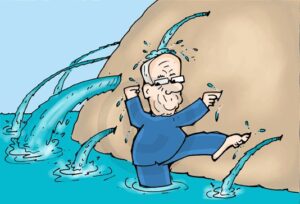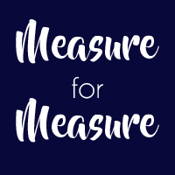Raboyseyee and Ladies,
Just Deserts & Drunken Sex
The heylige Ois finds himself over in Yirusholayim Iyr Hakoidesh (the holy city of Jerusalem) and begins with a PSA. Parts -ober zicher not the majority- of this week’s review were taken from a post written back in 2014. Let’s get real: do you remember what you read back then? Not and veyter!
We have previously said good bye to Odom & Chava and the Noiach family -all but Shaim who was seemingly still very much alive and still running his yeshiva. More on him and the yeshiva below. We also bid adieu to Avrohom and Soro and Yitzchok and Rivka; these two couples and the Odoms, are, according to tradition, buried in the Meoras Hamachpelo which Avrohom bought for full value. So happens that the heylige Ois visited with them just yesterday. We don’t know where the Noiachs are buried.
Last week, we said hello to the first set of twins encountered in Sefer Bereishis. We’ll meet another set in two weeks, they, born to Tamar and Yehuda, ober chap nisht. A few kabbalistic medroshim will suggest that Kayin and Hevel had twin sisters; others will suggest that the holy shevotim –all but one born in this week’s parsha- also had twin sisters. Did they? Ver veyst? Many of the unnamed twins are discussed by kabbalists; so happens that the Ois will be spending next shabbis of December 9-10 up in Tzefat – the epicenter of kabbala study- and will zicher raise this question.
 From last week’s post, zicher you recall that there was bad blood between Eisav and Yaakov. In plain English: Eisav, still smarting from being outwitted -twice- intended to kill his younger brother Yaakov. So, he said in his heart. That story will climax next week. For now, as we study Parshas Vayetzei, Eisav is still mad as hell. Ober, our parsha interrupts the narrative of the feuding brothers to tell us more about Yaakov; how he arrived to Choron as a penniless single yeshiva bochur and left 20 years later with four wives, at least 13 kids, a bunch of servants, and loads of cattle. He did better than ok; he was rich! Vayetzei features romance, love, aphrodisiacs, and lots of deception. Lovon fooled Yaakov by switching Leah for Rochel, Rochel – according to the medrish- helped her sister fool her husband to be, she also fooled her father by claiming she had her period (later in the parsha), and eventually, Yaakov was to fool Lovon and walk away with some of his wealth. Gishmak. Are we to emulate the ways of our forefathers and mothers? So we were taught. Veyter!
From last week’s post, zicher you recall that there was bad blood between Eisav and Yaakov. In plain English: Eisav, still smarting from being outwitted -twice- intended to kill his younger brother Yaakov. So, he said in his heart. That story will climax next week. For now, as we study Parshas Vayetzei, Eisav is still mad as hell. Ober, our parsha interrupts the narrative of the feuding brothers to tell us more about Yaakov; how he arrived to Choron as a penniless single yeshiva bochur and left 20 years later with four wives, at least 13 kids, a bunch of servants, and loads of cattle. He did better than ok; he was rich! Vayetzei features romance, love, aphrodisiacs, and lots of deception. Lovon fooled Yaakov by switching Leah for Rochel, Rochel – according to the medrish- helped her sister fool her husband to be, she also fooled her father by claiming she had her period (later in the parsha), and eventually, Yaakov was to fool Lovon and walk away with some of his wealth. Gishmak. Are we to emulate the ways of our forefathers and mothers? So we were taught. Veyter!

Speaking of yeshiva attendance, mistama you recall that just last week, we mentioned that Yaakov, like his father Yitzchok before him, also attended the famous yeshiva of Shaim & Ever. Unlike his father who may have been there and graduated in three years, and unlike his mother who may have spent but an afternoon at the yeshiva, Yaakov did a full 14 years. Exactly what he was learning ver veyst; it does appear that upon graduation, and as mentioned in last week’s post, he had certainly brushed up on his life skills. Why it took a few thousand years for yeshivas to chap that life skills are -at least for some- more critical than learning Gemora, ver veyst? By the time we get through Vayetzei, we will see just how Yaakov put his acquired skills into motion as he finally outwits his FIL. We have previously delved into this famous yeshiva, ober, it’s zicher worth another few seconds of reading during which we will learn how Chazal, our wise sages, figured out why he went there, and for how long. Lommer lernin (let’s learn). Were we, as did Rashi and many others, to review Yaakov’s life chronologically, we would find a 14-year lacuna (gaping hole); there’s no accounting for those years. Those years have disappeared as did billions in cryptocurrency in recent days. Of-course this very much bothered the Gemora and many others. We get angry when our kids go missing for a few hours; imagine how upset the Gemora and others were when they couldn’t account for 14 years of Yaakov’s life? What to do? Where was he? One could argue that the entire Gemora was written and redacted just to plug holes in the text. Nu, as we learned just last week, when an important person goes missing, the heylige Gemora and others will tell us that he was in the yeshiva. Not just any yeshiva but the famous yeshiva being operated by Shaim and Ever. Tradition tells us that from the time he left home -very end of last week’s parsha and the very first posik this week- where he arrives to Choron, Yaakov spent 14 years hiding out (from Eisav, and maybe also learning) in yeshiva. They base this on Rashi who quotes the heylige Gemora (Megillah 17a).
The first kasha might be azoy: Why would Yaakov hide out in a yeshiva? Did his parents instruct him to go to a yeshiva? They did not! The man was already 63 years old. Didn’t they instruct him to go directly to the city of Padon Arom and find himself a wife? They did! Did he listen? Not! Moreover, didn’t Eisav and everyone else know that Yaakov was not a hunter and did not enjoy the outdoors? Wouldn’t an indoor yeshiva be Eisav’s first stop? Was Yaakov hiding out at his rebbe’s house, ver veyst? Doesn’t the heylige Toirah tell us that Yaakov was a יושב אוהלים, one who dwells in tents? It does! Was Yaakov hiding in the yeshiva -maybe the only one in town- the wisest idea? Or, was he the first Boy Scout dwelling at a campsite? Seemingly not. Instead, as Rashi -and who knew better- tells us, he was taka dwelling in the tent of the famous yeshiva of Shaim and the yeshiva of Ever. Were these two different tents? Was one a breakaway? We will circle back to that kasha in a moment. And didn’t we learn that Ever was Shaim’s partner and that the yeshiva carried both names? We did. But wait, we have more questions. We recall from two weeks back that Rivka, after having unexplained pregnancy pains in her womb, made her way over to Shaim to seek his counsel and avada you also recall that Shaim was able to explain why the pangs were occurring. Given that this all took place before the horse carriage and automobile, as well as other modes of transportation -save the donkey- and since we have to also assume that mistama she wasn’t going to ride the donkey for fear that her skirt might lift up in an untzniisdike (immodest) fashion (we may also assume that she didn’t wear pants), oib azoy (if that’s the case), sheltz zich di shaylo azoy: where was this yeshiva? Just around the corner, or down the block? Ver veyst, but too far likely it wasn’t? Was Yaakov then hiding in plain sight? Was he under his shtender? Did the yeshiva have shtenders? If not, was it a real yeshiva? A yeshiva needs real wood; thankfully, these days most have an overabundance, if you chap. In any event, are we to believe that Yaakov successfully hid from a raging Eisav for 14 years mamish around the corner? Ver veyst?
Let’s see how the heylige Gemora answers this question; only then will you chap and be convinced of just how clever the heylige Gemora was -and remains- ad hayoim hazeh (until today). Earlier, we asked why Yaakov, knowing that all knew -he was a yeshiva boy- would hide out at a yeshiva of Shaim Vo’ever where he could easily be found. Taka a gutta shaylo (excellent question). Ober the Gemora’s answer makes this kasha look like mamish a klutz kasha. Says the heylige Gemora (Megilla) azoy: where was Yaakov learning -hiding- 14 years? Pay close attention to the words. The Gemora does not say Yaakov went to hide in the Yeshiva of Shaim. Nor does the Gemora say he went to the Yeshiva of Shem & Ever. The Gemora (See מהרש”א מגילה שם) says Yaakov went to hide in בית עבר, the yeshiva of Ever. Ever had his own yeshiva? Was it a breakaway or a franchise? What’s taka pshat? Seemingly, this was not the same yeshiva mentioned by name as the place where Yitzchok and others studied and it was not the same place Rivka went to question Shaim. Seemingly, Eisav only knew of the yeshiva being operated by Shaim but not Ever. Was it the first ever out-of-town yeshiva? Gishmak or what? Were there mamish two different Yeshivas? Shaim had a Yeshiva and Ever had one? And how does the Gemora deduce this? Shoin we need to revisit the words of the last weeks parsha where we learn that Yaakov was an ‘ish tom, yoishev oiholim (יושב אהלים). Notice the plural usage of the word Oiholim meaning tents as in more than one. Which means therefore that he sat in more than just one tent; he sat at two, maybe more. Which two? Seemingly he first enrolled in the tent of Shaim and later moved over to the tent of Ever. Fartig and settled! And says the medrish (Tanchuma Yoshon, Vayishlach 9) mamish so gishmak azoy: “[Yaakov] left the Beis Medrish (yeshiva) of Shaim and went to the Beis Medrish of Ever.” When Shaim passed away (he was over 600 years old), and with Eisav now looking to kill him, Yaakov realized that he could easily be found over at Shaim’s yeshiva. What to do? Where to run? Shoin, as we have stated in the past, the yeshiva has always been, and remains a good place to hang out, and hide out from reality. It was his safe place.
Ober asks Rav Kaminetsky azoy: why did Yaakov need to go learn there? Wasn’t he already learned enough? Hadn’t he spent 15 years learning by his zeyde Avrohom and hadn’t he already spent 45 years learning with his own father Yitzchok (let’s recall that he was 63 when he finally left the house). Why did he need 14 years of additional study in yet another yeshiva? Ver veyst? Did he do the right thing by taking a 14-year detour over to a yeshiva? Seemingly not; our sages will teach us that Yaakov was punished severely by the RBSO for this move. In fact, some argue that what went around came around as Yaakov was to wind up with the wrong wife after his FIL pulled a fast one.

We will learn -in a few weeks mamish- that some attribute Yoisef’s disappearance and the pain Yaakov felt during that time period, as payback. They will tell us that because Yaakov didn’t listen to his parents, didn’t go straight to Padan Arom, didn’t immediately marry, didn’t return with his new wife, and wasn’t able to then give his parents some yiddishe nachas, Yoisef’s disappearance was mamish a payback from the RBSO who does so middah keneged middah (measure for measure). You hear this? That cannot be good news for most of the readership, if you chap. Then again, Yom Kippur is less than a year away; we need to somehow get by until then. Veyter. Shoin, we have time and room for one more topic and let’s taka take a look at what befell Yaakov.

Es farshteyzich (it’s readily understood) that you are all very familiar with this parsha because it describes -in flowery detail- how Yaakov came to meet Rochel at the well –on his own, without a shadchan (matchmaker), say it’s not so- how he kissed her at first sight and yet, still retained the moniker of Yaakov Ovenu. Is kissing on the first date recommended? Perhaps we should emulate Yaakov. We also get full coverage on how Yaakov wound up marrying not just Leah and Rochel but also Bilhah and Zilpa, the two handmaidens of Rochel and Leah. Yaakov was the man! Ober for years, the heylige Ois and many of you must have been wondering just how Lovon was able to deceive Yaakov? What happened to his life skills? How it was at all shayich (remotely possible) that Yaakov did not know whom he was bedding when he thought he married Rochel but got Leah? Was Leah not at the chuppah? Did he not lift her veil? How could this have gone down? Has this ever happened to you?
The heylige Toirah (Bereishis 29:25) -as a matter of fact- told us azoy: “When morning came, there was Leah!” What? Ober, could Yaakov not tell the difference between Rochel, his beloved of seven years, and her sister Leah- for a whole night? Though we have zicher discussed this topic over the years, it’s always fascinating when the Ois digs up new, yet very old exegesis on this touchy subject. The fact is that this myseh she-ho-yo (this real story; of-course it’s real: it’s in the Toirah mamish) baffled many, and our sages, along with many others -even in our times, have long tried to make sense of the story by adding extra details. Because the Ois visited our foremother Rochel’s burial tomb just yesterday and also paid his respects to Odom & Chava, Avrohom & Soro, Yitzchok & Rivka, Yaakov & Lea, as well, as Eisav’s head – which according to the medrish, rolled into the cave, it’s efsher appropriate to review this most unusual narrative. How could this have happened? Which man would not recognize his wife all night? Which man would not recognize his wife’s voice? Let’s get real: Yaakov and Rochel knew each other and must have spoken over the seven years that Yaakov worked for his future FIL. This was a man who kissed her at first sight; are we to believe that they didn’t see or speak to one another for the next seven years? Which man wouldn’t charge out of the bedroom when discovering that he bedded the wrong sister? Ok, don’t answer that last question! Let us then review the known facts of the myseh -as told- and then try plugging a few holes. Seemingly, that’s just what Yaakov did.

Yaakov arrives at the city of his uncle, Lovon and meets his cousin Rochel at the well. He is struck by her beauty. He kisses her, stays with Lovon for a month, and starts working for him. Eventually, Lovon asks him to name his salary. The very benevolent Lovon says this: “Just because you are a kinsman, should you serve me for nothing? Tell me, what shall your wages be?” so far so good. At this point, the heylige Toirah tells us that Lovon had two daughters: Leah was the older one but Rochel was the beautiful one. Yaakov loves Rochel and responds that he will work for Lovon for seven years in exchange for Rochel’s hand in marriage (see 29:28). Lovon agrees to the deal; you all recall the rest. At the end of seven years, he approaches Lovon to demand that he move forward with the marriage. Let’s read posik 21 in perek 29: וַיֹּאמֶר יַעֲקֹב אֶל לָבָן הָבָה אֶת אִשְׁתִּי כִּי מָלְאוּ יָמָי וְאָבוֹאָה אֵלֶיהָ.—Then Yaakov said to Lovon, “Give me my wife, for my time is fulfilled, that I may lie with her.” Yaakov very explicitly states that he wants to lie with her. Yaakov’s phrasing is businesslike; I did the time, now she’s mine! Lovon throws a feast: כט:כב וַיֶּאֱסֹף לָבָן אֶת כָּל אַנְשֵׁי הַמָּקוֹם וַיַּעַשׂ מִשְׁתֶּה
And Lovon gathered all the men of the place and made a feast. Is a feast a wedding? Perhaps it was just the aufruf -perhaps the first ever. The feast is not a wedding ceremony. Why not? Because no mention is made of the bride being at the feast, and it seems to be an all-male event. nevertheless, after party and when night falls, Lovon unceremoniously brings Yaakov his bride:
כט:כג וַיְהִי בָעֶרֶב וַיִּקַּח אֶת לֵאָה בִתּוֹ וַיָּבֵא אֹתָהּ אֵלָיו וַיָּבֹא אֵלֶיהָ.
When evening came, he took his daughter Leah and brought her to him; and he laid with her. Yaakov doesn’t seem to notice a thing that night. The surprise only comes the next morning: When morning came, there was Leah! ַיְהִי בַבֹּקֶר וְהִנֵּה הִוא לֵאָה…
Well, blow me down: Was Yaakov hoodwinked? Did Lovon do to him what he, Yaakov did to Eisav? Are there parallels between what Yaakov did to Eisav and his father Yitzchok (Bereishis 27) and what Lovon does to Yaakov in two chapters later in our parsha? Did Yaakov take advantage of the fact that his father was blind in order to trick him into believing that he, Yitzchok’s younger son, was really Yitzchok’s older son Eisav? He did! In our parsha, Lovon takes advantage of the nighttime darkness, in which Yaakov was “blind” to make him think that his older daughter, Leah was really his younger daughter, Rochel. Is the RBSO telling us, or at least implying that Yaakov receives his just deserts, measure for measure, for tricking his father? Grada, if one has to be punished, Yaakov’s wasn’t very giferlich; many would sign up for his punishment. On the other hand, were these but coincidences? The Toirah tells us that it was dark; we assume Yaakov couldn’t see her properly. And says the Shadal, azoy: “And there is no doubt that they had sex in the dark, and thus he did not recognize her until the morning. ואין ספק כי כששימש עמה בחושך היו ולא הכיר בה עד הבקר.

The bottom line: our sages use this story “And it was in the evening” to teach us that it is not fit for a person to have sex by candle light, and all the more so during the light of day. Why that makes sense, ver veyst? Says the medrish (Bereishis Rabbah 70:19), azoy about sex in the dark:
.ברמשא אתון מעלתא וטפון בוציניא, אמר להון מהו כדין, אמ’ ליה מה את צבי דאנן דבזיון דכוותכון,
In the evening, they came to bring her into the tent and they [Lovon and Leah] put out the candles (in Yaakov’s tent). [Yaakov] said: “Why are you doing that?” [Lovon] responded: “Do you think we are crass like you [by having sex by candle light]?!”
Let us circle back to the Radak who suggests that Yaakov was extremely modest, so much so that he did not speak with his new bride during sex or at any other time that night: And one should not speak with his wife during sex, but it should be done hiddenly and a person should behave modestly with his wife, for Yaakov did not recognize [Leah] until the morning, neither by her appearance nor by her voice.
ולא לספר עם אשתו בשעת תשמיש אלא בחשאי ולהיות בצניעות עם אשתו, שהרי יעקב לא הכיר בה אלא עד הבקר, לא במראה ולא בקול:
Radak says more: the rabbinic axiom not to have sexual relations in the light is learned from this story. Grada, logic would dictate punk farkert (opposite). Would Yaakov have bedded Leah during the day? The good news: it’s but a rabbinic axiom (not to have sex by day; it’s not the law. Instead, it’s what the heylige Gemora (Niddah 2,4, and 16B) calls a “despised practice” (מגונה; Niddah 2:4; On the other hand, the RambaM (Mishneh Torah, “Forbidden Sexual Practices”, 21:10) says it’s mamish the law!
ויהי בערב – הודיענו בספור הזה שאין ראוי לאדם לשמש מטתו
Efsher you’re still wondering azoy: we can chap that Yaakov could not see Leah in the dark, but what about her voice? Let us recall how Yitzchok became suspicious when he heard Yaakov’s voice; wasn’t Yaakov at all shocked to hear a voice different that the one he had become accustomed to hearing? Not to worry because the Radak plugs this hole azoy: they didn’t talk to each other during intimacy and seemingly the rest of the night. Shoin, that’s an idea many can relate to; what’s there to talk about? On the other hand, Radak’s idea that Yaakov and Leah were entirely silent for considerations of modesty seems incongruous with his kissing her upon first encounter and his blunt reference to sex when reminding Lovon it had been seven years; bring me my wife so that I may come upon her! Moreover, how far is this modesty supposed to extend? Even if they were entirely silent during intercourse, did they not talk before or after? How much conversation would it take to realize he is not with his beloved of seven years? Remember, Yitzchok is suspicious after Yaakov utters only a couple of sentences.
Are we to believe that Yaakov did not -at all- suspect some foul play? Why is he not presented as being even a little hesitant, as his father was? But listen to this gishmake pshat and explanation of why Yaakov knew nothing. He was drunk. Mamish? When did he drink? Did he drink himself silly because he was getting married? Hey, did we not learn (above) that Yaakov had just come from the party that Lovon threw? We did? Were either Rochel or Leah invited? Seemingly not! Yaakov was over at the “mishteh” the drinking party that Lovon gave. And without food -but only drink, or mostly drink, we can chap that Yaakov was inebriated and shoin. Lovon made the switch with an unsuspecting Yaakov waiting in his tent ready to “come upon his wife.” So happens that this pshat is not from the Ois but was suggested by Josephus. The Hebrew word for “feast,” משתה (mishteh), literally means “drinking party.” And he, cohabiting under the influence of intoxication and darkness, then recognized her when daylight came and accused Lovon of knavery. Who suggests this pshat? Check out the Da’as Zekeinim, and the Hadar Zekeinim who says this: ויאסוף לבן את כל אנשי המקום ויעש משתה. לבן היה אב לרמאים ועל כן נקרא לבן הארמי ונתכוון לשכר יעקב ולרמותו שלא יבין בין רחל ללאה ותדע שהרי לא עשה משתה ברחל.
“Lovon gathered all the men of the area and had a mishteh (drinking party). Lovon was the father of swindlers, and this is why he is called Lovon the Aramean (understood as ramai, “trickster”). He intended to get Yaakov drunk in order to fool him such that he would be unable to distinguish between Rochel and Leah. Note [in support of this] that he made no “drinking party” for Rochel.” The same pshat is found in Toledos Yitzchok.
ויאסוף לבן את כל אנשי המקום ויעש משתה, לא כאברהם שנתן להם לאכול, ולא כלוט שנאמר ויעש להם משתה ומצות אפה ויאכלו, אלא ויעש משתה שקביעותו עשה על היין כדי לשכר אותו, בעבור שלא ידע אם היא רחל או לאה:
Lovon gathered all the men of the area and had a mishteh (feast, lit. drinking party) – unlike Avrohom, who gave his guests food to eat (Bereishis 18:5-8), or Loit, regarding whom it says (Bereishis 19:3) “he made them a drinking party and cooked unleavened bread and they ate.” Instead, [Lovon] had only a mishteh, whose main item is wine, in order to get Yaakov drunk, so that he would not know if [the daughter he brought him] was Rochel or Leah.

Did Yaakov then -have drunken sex? Say it’s not so and oy vey, but the medrish say, yes! Ober, would he have been the first Toirah character to have done so? Not! The image of someone being tricked -or forced- into sex because of drink is a motif in the story of Loit and his two daughters (Bereishis 19:30-38). Of course, you never forgot that story but let us read the key words.
| 33. And they gave their father wine to drink on that night, and the elder came and lay with her father, and he did not know of her lying down or of her rising up. | לגוַתַּשְׁקֶ֧יןָ אֶת־אֲבִיהֶ֛ן יַ֖יִן בַּלַּ֣יְלָה ה֑וּא וַתָּבֹ֤א הַבְּכִירָה֙ וַתִּשְׁכַּ֣ב אֶת־אָבִ֔יהָ וְלֹֽא־יָדַ֥ע בְּשִׁכְבָ֖הּ וּבְקוּמָֽהּ: | |
| 34. And it came to pass on the morrow, that the elder said to the younger, “Behold, last night I lay with my father. Let us give him wine to drink tonight too, and come, lie with him, and let us bring to life seed from our father.” | לדוַֽיְהִי֙ מִמָּֽחֳרָ֔ת וַתֹּ֤אמֶר הַבְּכִירָה֙ אֶל־הַצְּעִירָ֔ה הֵֽן־שָׁכַ֥בְתִּי אֶ֖מֶשׁ אֶת־אָבִ֑י נַשְׁקֶ֨נּוּ יַ֜יִן גַּם־הַלַּ֗יְלָה וּבֹ֨אִי֙ שִׁכְבִ֣י עִמּ֔וֹ וּנְחַיֶּ֥ה מֵֽאָבִ֖ינוּ זָֽרַע: | |
| 35. So they gave their father to drink on that night also, and the younger arose and lay with him, and he did not know of her lying down or of her rising up. | להוַתַּשְׁקֶ֜יןָ גַּ֣ם בַּלַּ֧יְלָה הַה֛וּא אֶת־אֲבִיהֶ֖ן יָ֑יִן וַתָּ֤קָם הַצְּעִירָה֙ וַתִּשְׁכַּ֣ב עִמּ֔וֹ וְלֹֽא־יָדַ֥ע בְּשִׁכְבָ֖הּ וּבְקֻמָֽהּ: |
What is the bottom line when we read that Yaakov was fooled, or was in a drunken state so that he could -as the RBSO had planned- be with Leah instead of the girl he loved and wanted? Ver veyst? The RBSO wanted Yaakov to sire the twelve shvotim (tribes); he did just that. What was the bottom line when Loit was drunk, mounted by his daughters? He fathered two nations, and was the great -many times- grandfather of Rus?
The final bottom line: Do not try this at home! The eishes chayil will have little tolerance when you try explaining that you are but emulating the ways of our forefathers and other Toirah characters. There were handpicked; you should leave these matters in your hand.
A gittin Shabbis-
The Heylige Oisvorfer Ruv
Yitz Grossman

1 Comment
B’chvod the Ois,
Am a big fan. Read it every week.
This week’s is well sourced and intriguing as always.
I believe you meant just desserts though, not deserts. The Ois is wandering too much in the arid air of the holy land this week for certain.
Shoin.
Good Shabbos